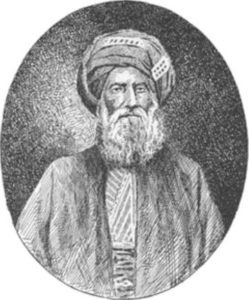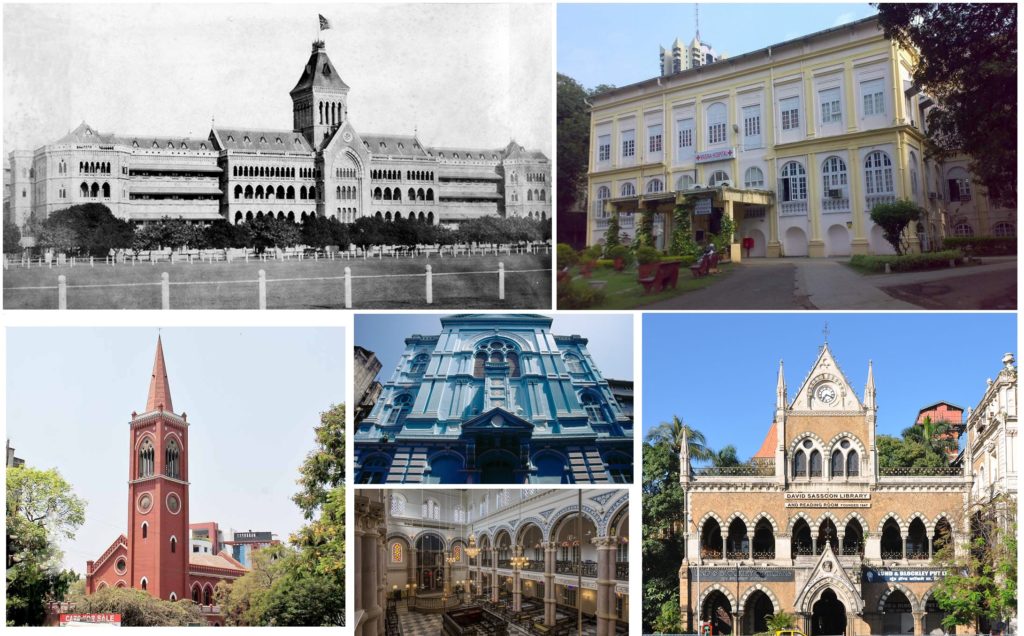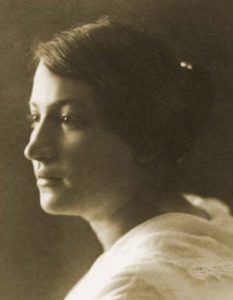Israel’s Freedom Fighter
 Avraham Yair Stern (1907-1942) was born to a Russian-Jewish family in what is today Poland. The family fled during World War I, and Stern ended up living in a small village in Siberia. At 18, he made aliyah on his own to the Holy Land. Stern joined the Haganah defense organization and took up studies at the Hebrew University in Jerusalem. In 1932, he joined the more right-wing Irgun and trained to become an officer. Stern was also a passionate writer and poet. His lyrics were credited with inspiring and strengthening countless Jewish pioneers in Israel. The Hebrew University was so impressed that they sent him to Italy for doctoral studies. Meanwhile, he travelled around Eastern Europe to convince more Jews to make aliyah and join the Zionist movement. Stern quickly recognized the British as oppressors and foreign colonialists, and argued that as the indigenous people of the land Jews had to do whatever it took to reclaim their ancestral home. When the British released the infamous 1939 White Paper limiting Jewish immigration (allowing only 75,000 Jews to enter over five years), Stern concluded that negotiations and diplomacy with the British was no longer possible, and armed resistance was necessary. At the outbreak of World War II, Stern was actually part of a training program with the Polish Army to train 40,000 Jews to liberate Israel from the British! The Nazi invasion of Poland put an end to that program. Stern eventually broke away from the Irgun and formed Lohamei Herut Israel, “Freedom Fighters of Israel”, abbreviated Lehi, in 1940. Some Lehi members sought to recruit local Arabs in their struggle against the British oppressor. But Stern, having lived through the terrible 1929 Hebron massacre and Arab riots (in which over 130 Jews were slaughtered and hundreds more injured and raped), foresaw that the Arabs would never share the land with the Jews in the long-term. Stern went on to organize attacks on British positions and assassinations of British authorities. His group was commonly referred to as “the Stern Gang”. Stern was shot to death by a British policeman in early 1942. Nonetheless, the Stern Gang continued its activities, and even assassinated the antisemitic Lord Moyne, the highest-ranking British official in the Middle East. These events finally convinced the British to abandon the Holy Land for good, allowing the State of Israel to be proclaimed. Immediately after, the new government of Israel disbanded Lehi. In January of 1949, they granted amnesty to past Lehi members, including future Israeli prime minister Yitzhak Shamir. Though he was only 34 years old when he was killed, Yair Stern is credited with playing an instrumental role in the formation of the State of Israel.
Avraham Yair Stern (1907-1942) was born to a Russian-Jewish family in what is today Poland. The family fled during World War I, and Stern ended up living in a small village in Siberia. At 18, he made aliyah on his own to the Holy Land. Stern joined the Haganah defense organization and took up studies at the Hebrew University in Jerusalem. In 1932, he joined the more right-wing Irgun and trained to become an officer. Stern was also a passionate writer and poet. His lyrics were credited with inspiring and strengthening countless Jewish pioneers in Israel. The Hebrew University was so impressed that they sent him to Italy for doctoral studies. Meanwhile, he travelled around Eastern Europe to convince more Jews to make aliyah and join the Zionist movement. Stern quickly recognized the British as oppressors and foreign colonialists, and argued that as the indigenous people of the land Jews had to do whatever it took to reclaim their ancestral home. When the British released the infamous 1939 White Paper limiting Jewish immigration (allowing only 75,000 Jews to enter over five years), Stern concluded that negotiations and diplomacy with the British was no longer possible, and armed resistance was necessary. At the outbreak of World War II, Stern was actually part of a training program with the Polish Army to train 40,000 Jews to liberate Israel from the British! The Nazi invasion of Poland put an end to that program. Stern eventually broke away from the Irgun and formed Lohamei Herut Israel, “Freedom Fighters of Israel”, abbreviated Lehi, in 1940. Some Lehi members sought to recruit local Arabs in their struggle against the British oppressor. But Stern, having lived through the terrible 1929 Hebron massacre and Arab riots (in which over 130 Jews were slaughtered and hundreds more injured and raped), foresaw that the Arabs would never share the land with the Jews in the long-term. Stern went on to organize attacks on British positions and assassinations of British authorities. His group was commonly referred to as “the Stern Gang”. Stern was shot to death by a British policeman in early 1942. Nonetheless, the Stern Gang continued its activities, and even assassinated the antisemitic Lord Moyne, the highest-ranking British official in the Middle East. These events finally convinced the British to abandon the Holy Land for good, allowing the State of Israel to be proclaimed. Immediately after, the new government of Israel disbanded Lehi. In January of 1949, they granted amnesty to past Lehi members, including future Israeli prime minister Yitzhak Shamir. Though he was only 34 years old when he was killed, Yair Stern is credited with playing an instrumental role in the formation of the State of Israel.
Should Jews Celebrate Halloween?
Orthodox Mother of 10 Worked for 12 Hours to Save Partygoers
Why Are Israeli Soldiers Snapping Up Tzitzit?
Bedouin Bus Driver Saves 30 Israelis
Pro-Palestinian Protestors Ignore History and Pay the Price
Thousands of Ultra-Orthodox Israelis Enlist in IDF
Piers Morgan Interviews ‘Son of Hamas’
Words of the Week
The current Palestinian political economy, influenced far too greatly by the BDS and anti-normalization campaigns, amounts to a corrupt, unsustainable, terror-supporting regime that is disinterested in the economic well-being of its own people and the development of a new state.
– Khaled Abu Toameh, Arab journalist and filmmaker



